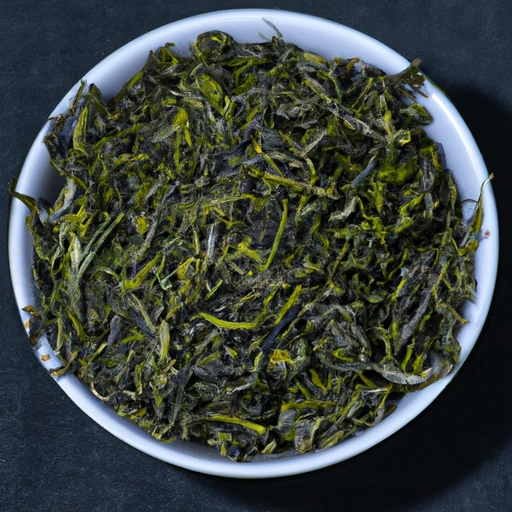Longjing Tea
Description

Longjing Tea, or Dragon Well tea, is a famed variety of green tea originating from Longjing Village in Hangzhou, Zhejiang Province of China. Esteemed for its high quality and distinctively flat, emerald green leaves, Longjing tea offers a gentle, clean flavor with a sweet, nutty aroma. In recipes, it imparts a subtle vegetal note and a slightly sweet aftertaste, adding a sophisticated touch to dishes and beverages.
Common uses
Longjing Tea is utilized both as a standalone beverage and as a delicate flavor enhancer in a variety of culinary creations, from sweet treats to savory dishes. It's often enjoyed during the Qingming Festival when the first flush of young leaves is harvested, signifying a premium grade known as 'Pre-Qingming Longjing'.
Nutritional value
Calories
Longjing Tea is virtually calorie-free when consumed on its own without added sweeteners or milk, making it an ideal choice for those monitoring their calorie intake.
Protein
It contains trace amounts of protein, essential in building and repairing the body's tissues.
Fat
Longjing Tea is naturally fat-free, fitting well into low-fat diet plans.
Carbohydrates
Carbohydrates are minimal in Longjing Tea, primarily in the form of simple sugars and dietary fiber when the leaves are infused in water.
Vitamins
This tea is a source of vitamins, such as Vitamin C and Vitamin B2, which are beneficial for immune health and energy metabolism.
Minerals
It also provides minerals including potassium, which aids in maintaining healthy blood pressure, and manganese, which supports bone health and metabolism.
Health benefits
Longjing Tea is renowned for its potential health benefits, including boosting metabolism, aiding in weight loss, and reducing stress. Rich in antioxidants, it may also contribute to reducing the risk of chronic diseases and improving overall health.
Potential risks
While Longjing Tea is generally safe for consumption, excessive intake can lead to caffeine-related side effects such as insomnia, jitteriness, or an upset stomach. It also contains tannins, which can inhibit the absorption of iron when consumed in large amounts.
Common recipes
Longjing Tea is often used to prepare the exquisite 'Dragon Well Shrimp', a traditional Hangzhou dish, and can also be found flavoring baked goods, ice creams, and cocktails.
Cooking methods
When using in cooking, Longjing Tea leaves can be steeped in water at around 80°C (176°F) to extract their flavor before being incorporated into recipes. The leaves can also be ground into a fine powder for use as a seasoning or colorant.
Pairing with other ingredients
Its delicate taste pairs exceptionally well with seafood, poultry, and light desserts, balancing flavors without overwhelming them.
Summary
Longjing Tea, with its refined taste and historical prestige, is a versatile ingredient that offers both flavor and health benefits. It's a perfect addition for those looking to infuse a touch of elegance into their culinary endeavors.